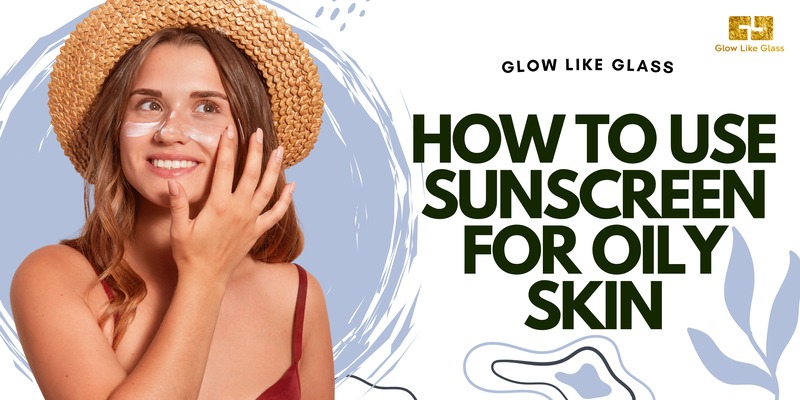Hello, sun fanatics! We all know sunscreen is our trusting soldier in battling dangerous sun rays. For oil skin, it’s harder. Finding an awesome sunscreen for oily skin is like attempting to find a needle in the ocean. Don’t panic; this guide is right here to help you with that. This article will give an explanation of the entirety of what you need to know about your oily pores and skin and their protection. From deciding on the sunscreen for your oily skin to applying it perfectly without looking greasy, we cover the whole thing. But before mastering the art of sunscreen, you should know what exactly a sunscreen is.
Table of Contents
What is a sunscreen?
Sunscreen is a skin care product that protects your skin from harmful UV rays from the sun. Its component, UV, filters, absorbs, or sends back UV rays to defend your skin from damage. Apart from those filters, different ingredients protect your skin from aging due to sun damage.
How does it work
As sunscreen works, it absorbs UV rays or reflects them out of your skin. When UV rays come in contact with your skin, they harm it in the form of untimely aging and skin cancer. Sunscreen filters take in these rays to prevent them from damaging your skin.
Types of sunscreens
There are two sorts of sunscreen primarily based on the form of filters they have:
Chemical sunscreen
Chemical sunscreens absorb UV rays and dissipate them away from your skin. They are available in the form of facial serum, lotions, creams, and sprays. Chemical sunscreens are typically quick to apply and more affordable.
Physical sunscreen
Physical sunscreen reflects UV rays. It works by deflecting the sun’s rays at once instead of absorbing them like the former. Physical sunscreens come in the form of powders, creams, and gels. They are generally extra difficult to apply, more expensive, and take longer to combine with your skin.
SPF and its significance
The sunscreen’s strength to defend your skin from the sun is defined via a metric called the SPF (Sun Protection Factor). This is a sign of how much sun protection the sunscreen affords you. The better the SPF of the sunscreen, the better its strength to resist the sun’s damage.
Why Sunscreen is Essential for Oily Skin?
Sunscreens are essential for your pores and skin. Your pores and skin produce natural oil, referred to as sebum, and overproduction of this sebum ends up in oily pores and skin. If your skin is oily, sunscreen can be pretty important for the following motives:
Protects from skin aging
While we get older, we begin to reveal signs of ageing on our faces within the form of sagging pores and skin, fine strains, and wrinkles. Most of this ageing is because of the depletion of collagen and sun harm. In easy terms, our bodies supply more collagen because we get older, but UV rays degrade the quantity of collagen in our frame. And because our bodies supply much less collagen, the aging signs and symptoms start appearing.

Protects from skin cancers
Sunscreen stops your skin from the harms of the sun and, in turn, prevents your pores and skin from skin cancers.

Sebum production
Oily pores and skin have a problem with sebum production. Too much sebum causes the skin to become oily and acne-prone. Overproduction of sebum comes from sun damage, which causes the sebaceous glands to overwork.

Sunburn
Oily skin is more vulnerable to sunburns. Sunburns on the skin can cause dryness and irritation, making your skin look even more oily.

Choosing the Right Sunscreen for Oily Skin
Now that you understand why oily skin needs sunscreen. Let’s find the proper sunscreen for oily pores and skin.
Key ingredients to look for
Below are a few of the key ingredients to remember while shopping for sunscreen for oily skin:
Non-Comedogenic Ingredients
If you have oily skin, avoid ingredients that cause comedones. Check the labels of sunscreen to make certain it’s non-comedogenic.
Oil-Free Formulas
Oily skin does not want something else to further add oil to the pores and skin. So choose a sunscreen that’s 100% oil-loose.
Non-greasy Finish
One of the most important issues regarding sunscreen is its greasy finish. Choose a sunscreen with a non-greasy texture that will not leave any white cast or grease residue on your face.
Antioxidants
As you recognize, the oil produced by your pores and skin is a very beneficial antioxidant resource. So, it’s vital to have antioxidants inside the sunscreen. This will guard the skin against damage caused by the sun and oxidative stress.
Ingredients to Avoid
Fragrance
This is one of the most commonplace motives why your skin gets irritated. You need to be careful and pick out products that don’t include fragrance.
Alcohol
Alcohol is a drying agent, which is why it is no longer advised for oily skin. Make sure your sunscreen is loose from any alcohol.
Sulfates
Sulfates strip off the skin’s pure oil, that may bring about dryness. So, prevent sunscreen with sulfates.
Recommended products and brands
La Roche-Posay Anthelios Clear Skin Dry Touch Sunscreen SPF 60
- Formulated specifically for oily skin with a dry-touch finish.
- Non-comedogenic and oil-free.
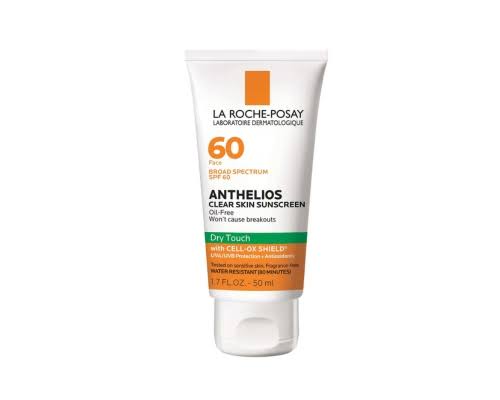
Neutrogena Hydro Boost Water Gel Lotion SPF 30
- Lightweight, water-based formula that hydrates without making skin oily.
- Non-comedogenic and provides broad-spectrum protection.
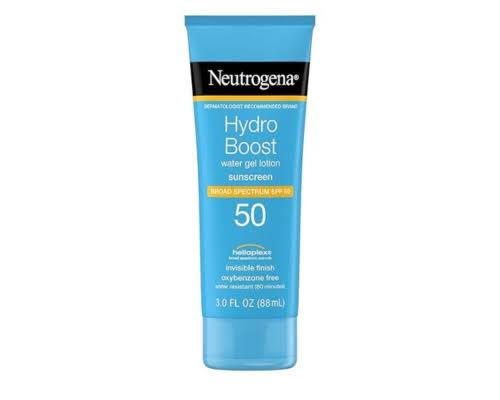
EltaMD UV Clear Broad-Spectrum SPF 46
- Contains niacinamide to help with redness and acne.
- Oil-free and non-comedogenic, suitable for sensitive skin.
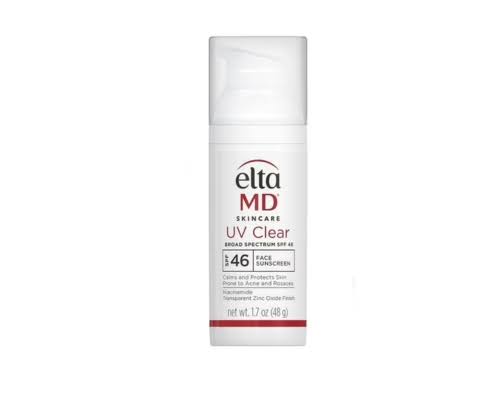
CeraVe Ultra-Light Moisturizing Lotion SPF 30
- Combines sunscreen with a lightweight moisturizer.
- Non-comedogenic and designed for oily skin types.
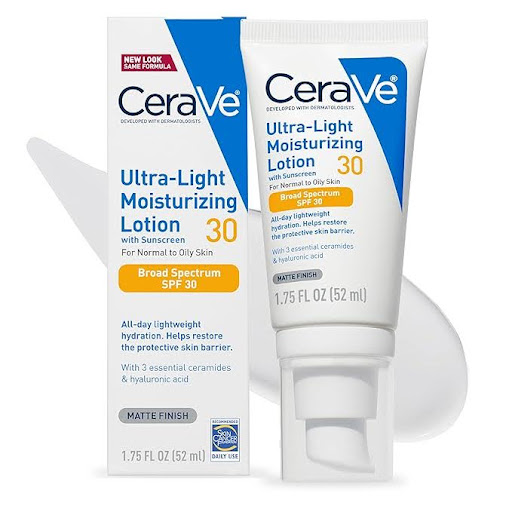
How to Properly Apply Sunscreen
Applying sunscreen properly is vital to guard your skin from the sun. It makes certain that the sunscreen is spread equally throughout the face, with no gaps. Here are some steps on how to properly use sunscreen for oily skin:
Cleanse your skin
It’s essential to cleanse your face earlier than you apply sunscreen. Make sure you’ve taken out every trace of makeup and/or skin care products. This ensures that the sunscreen will be easy and spread properly over your face.
Moisturize
Oily skin wishes some moisture. Before you use a sunscreen, you need to moisturize your face. Apply some toner, and moisturizer earlier than you use a sunscreen. It will also enable the sunscreen to mix better with your skin.
Apply sunscreen
Apply sunscreen on your face generously. Remember that oily skin wishes extra sunscreen than other skin types. You need to rub in your sunscreen for a while to ensure it is spread nicely. Make sure you get hold of your nose, chin, and forehead with out leaving any gaps.
Re-apply
Once you’re finished, it’s time to re-apply it each 2-3 hours, especially if you’re outside all day. This is for sunscreen to be effective and shield your pores and skin.
Use sunscreen under your makeup.
If you’re a makeup lover, do now not make the error of ignoring the sunscreen under your makeup. This is because most makeup provides no defense in opposition to the sun. So, use sunscreen before you apply your makeup.
Conclusion
There you have it. With this right knowledge and patience, you can find the perfect product for your oily skin. Remember, sunscreen is your skin’s best friend. Embrace the power of SPF and say goodbye to shiny skin woes.
Frequently asked questions
Is it necessary to use sunscreen indoors?
Yes, it is. UVA rays can penetrate windows and cause skin damage even indoors. Applying sunscreen daily protects your skin from these rays, helping to prevent premature aging and other skin issues.1
Can sunscreen cause breakouts on oily skin?
Not all sunscreens will cause breakouts, but it’s essential to choose a non-comedogenic and oil-free formula. These sunscreens are designed not to clog pores, reducing the risk of breakouts. Look for products specifically labeled for oily or acne-prone skin.
Can I skip moisturizer if I have oily skin and use sunscreen instead?
While some sunscreens contain moisturizing properties. It’s usually best to use a separate, lightweight, non-comedogenic moisturizer. This ensures your skin stays hydrated without becoming overly greasy.
